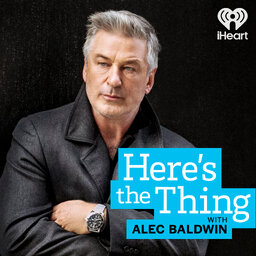Judd Apatow and Eric Fischl
Judd Apatow’s films—The 40 Year Old Virgin, Knocked Up, and Funny People—feature emotionally immature men forced to grow up after confronting sex, responsibility, and death. Of all Apatow’s movies, This is 40 may be his most personal; it stars his wife, Leslie Mann, their two daughters, and one of his long-time heroes, Albert Brooks. Apatow thinks of each movie he makes as a letter, telling him something he needs to know about how better to live life.
Eric Fischl became known in the 1980s art scene for work that explores issues of sexuality and power and what it means to become a man. Alec talks to Fischl about his memoir, Bad Boy: My Life On and Off the Canvas, where the painter writes candidly about his youth, the art world, his own struggles with depression and substance abuse, and his thoughts about the creative process. Fischl started as an abstract painter, but as he explains to Alec, once he began to work with figures, he realized he was “doing the work that [he] was supposed to do, that [he] was built for.”
Learn more about your ad-choices at https://www.iheartpodcastnetwork.com
In 1 playlist(s)
Here's The Thing with Alec Baldwin
Award-winning actor Alec Baldwin takes listeners into the lives of artists, policy makers and perfor…Social links
Follow podcast
Recent clips

Here's The Thing: Trailer
01:41

E Jean Carroll on Writing and Resilience
35:20

Kat Owens Raises Environmental Awareness Through Art
40:08
 Here's The Thing with Alec Baldwin
Here's The Thing with Alec Baldwin